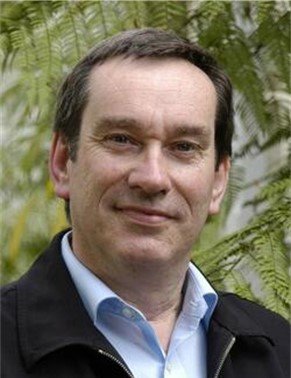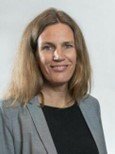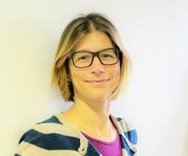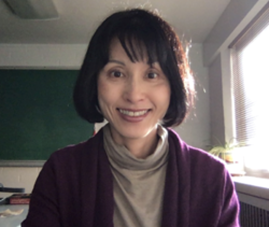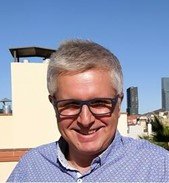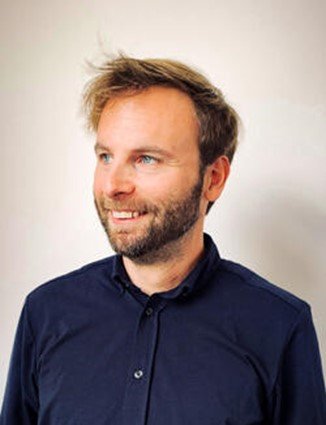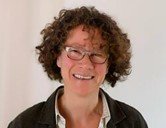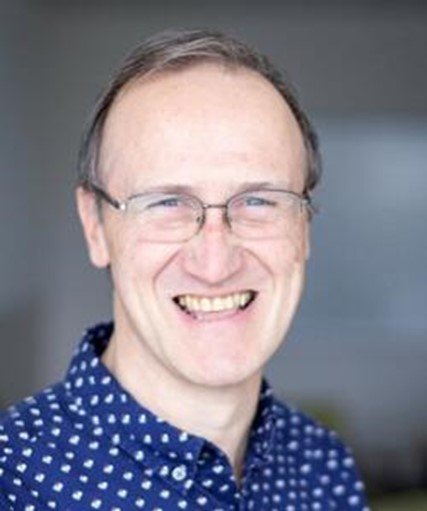Conference Program
Full Conference Program | Time Schedule | Plenary Speakers | Invited Colloquia | Invited Workshops
FULL CONFERENCE PROGRAM
To download the Full Conference Program, please click here.
TIME SCHEDULE
Mon, 29 till Wed, 31 August 2022
For the detailed Conference Program please click here.
To read the abstracts of all contributions and create your personal conference agenda, please visit ConfTool.
| Time | Program | Program |
|---|---|---|
| Preliminary Time Schedule | ||
| Day 1 | Mon, 29 August 2022 | ||
| 08.00 - 09-00 | Registration | |
| 09.00 - 09.30 | Welcome & Opening | |
| 09.30 - 10.30 | Keynote 1: Martin East | |
| 10.30 - 11.00 | Coffee | |
| 11.00 - 12:40 | Session 1 | |
| 12:40 - 14.00 | Lunch | 13.00-14.00 TASK Editorial Board Meeting (SR13) |
| 14.00 - 16.15 | Session 2 | |
| 16.15 - 16.45 | Coffee | |
| 16.45 - 18.40 | Session 3 | |
| 18.40 - 19.30 | Welcome Reception | |
| 19.30 | Guided City Tour | Meeting Point: Reception Desk |
| Day 2 | Tue, 30 August 2022 | ||
| 08.30 - 09.00 | Registration | |
| 09.00 - 10.00 | Keynote 2: Anke Lenzing | |
| 10.00 - 11.00 | Posters & Coffee | sponsored by DIGITASK |
| 11.00 - 13.15 | Session 4 | |
| 13.15 - 14.30 | Lunch | 13.30-14.00: informal event (see below) (SR13) |
| 14.30 - 16.10 | Session 5 | |
| 16.10 - 16.40 | Coffee | |
| 16.40 - 17.40 | Keynote 3: Rhonda Oliver | |
| 19.00 | Conference Dinner | deck47, Archenweg 62, 6020 Innsbruck |
| Day 3 | Wed, 31 August 2022 | ||
| 08.30 - 09.00 | Registration | |
| 09.00 - 10.40 | Session 6 | |
| 10.40 - 11.10 | Coffee | |
| 11.10 - 12.10 | IATBLT Annual General Meeting | |
| 12.15 - 13.15 | Keynote 4: Marije Michel | |
| 13.15 - 13.40 | Closing | |
| 13.40 | Lunch | 15.00 Meeting of the IATBLT Executive Board (SR13) |
| (Version 3 - August 2022) |
Please note that this time schedule is preliminary and might be subject to change!
Informal event: Exploring student-student collaboration in designing tasks across TBLT courses and institutions
Koen Van Gorp & Laura Gurzynski-Weiss
As more and more faculty are introducing undergraduate and graduate students to task-based language teaching, we have noticed a growing need for students to exchange ideas or collaborate on designing tasks for different learner audiences. Designing tasks proves to be a challenge for students and discussing tasks with fellow -students in and across courses can help students to get a better grip on what tasks are and how task criteria can be applied for varied audiences or contexts. In this informal meeting, we want to explore how faculty members across institutions and countries can work together to offer their students a high-quality collaborative experience in designing tasks and exchanging ideas about TBLT. Feel free to bring your syllabus and any out-of-the-box idea on how to facilitate collaborative experiences across institutions. Join us on Tuesday August 30th from 13:30 till 14:00 in room SR13.
PLENARY SPEAKERS
Plenary 1
The Teacher Variable in TBLT: Broadening the Horizon through Teacher Education and Support
Speaker: Martin East
Martin East is Professor of Language Education in the School of Cultures, Languages and Linguistics, at the University of Auckland, New Zealand. In 2022 he completes a term as President of the International Association for Task-Based Language Teaching. His most recent book - Foundational Principles of Task-Based Language Teaching (Routledge, 2021) - has been written to provide a foundational overview of the theory and practice of TBLT and to demystify what TBLT looks like in classrooms. It is available Gold Open Access from Routledge.
Abstract
Over the last 40 years, TBLT has stimulated increasing interest from a wide range of stakeholders in the language teaching and learning endeavour. Researchers have investigated empirically how communicative tasks can promote second language acquisition. They have also looked at the impact of TBLT from the perspective of teachers and learners working in different contexts across the world. Additionally, teachers have increasingly shown great interest in TBLT, whether motivated by what they hear about TBLT in different contexts, or responding to task-based initiatives in their own contexts. However, research into the teachers’ perspective has demonstrated that teachers show variable understandings of, and commitment to, TBLT ideas, leading to a range of practices and outcomes in classrooms. This makes teachers a crucial variable in the success (or otherwise) of TBLT. Nevertheless, Hattie (2009) reminded us that teachers represent the major source of controllable variance in education systems. In this light, in this plenary I address the central teacher variable in TBLT and consider the range of ways in which teachers, who have such a critical role to play in advancing the TBLT project, can be supported in their work.
Plenary 2
How a processability perspective frames the potential of tasks in instructed
SLA
Speaker: Anke Lenzing
Anke Lenzing is professor of English language education at Innsbruck University, Austria. Her research engages with psycholinguistic aspects of (instructed) second language acquisition. She has worked extensively within the framework of Processability Theory has extended the theory to include a model of the mental grammatical system of beginning L2 learners as well as a model of the interface between L2 comprehension and production. Her current research focuses on psycholinguistic perspectives on L2 communicative interaction and on applying mathematical principles of dynamical systems theory to selected aspects of SLA.
Abstract
My presentation applies a Processability Theory (PT) (e.g., Pienemann & Lenzing 2020) lens to the potential of communicative tasks for instructed SLA. PT focuses on the nature and consequences of learners’ L2 processing capacities to clarify the obstacles, achievements and (some) systematic aspects of variation in L2 learning. Its core claim is that regular, observable developmental and variational aspects in L2 acquisition system are respectively the direct result of underlying processing constraints or constrained by them.
I show that a processability perspective on tasks in SLA can contribute to our understanding of how both the universal and individual features of learner language can be recognised in learners undertaking L2 tasks. I investigate speech samples of different learners completing the ‘same’ task at different points in their L2 development. I use PT to unpack how the ‘same’ task systematically reveals varied language features of different language learners by exploring the different linguistic structures used by the learners, the variability in different semantic fields covered by them and their ability to align with their interlocutor. In doing this, I make clear that PT can empower teachers to nuance the design of learning activities to take account of different learning needs.
Plenary 3
Tasks for diverse learners in diverse contexts: A case study of Australian Aboriginal vocational students
Speaker: Rhonda Oliver
Professor Rhonda Oliver is Head of the School of Education, Curtin University, Western Australia. She has researched extensively about second language and dialect acquisition, especially in relation to child and adolescent language learners in schools and universities. Her more recent work includes studies within Australian Aboriginal education settings.
Abstract
In this presentation I will describe how authentic tasks can support vocational skill learning whilst promoting second language learning. I will focus in particular on Aboriginal, high school students who come from remote locations in Western Australia and who have English as their second language or dialect. The research setting for this study – which is located a considerable distance from their homes – is a vocational boarding school. I have spent over a decade researching and working alongside the teachers and their students at this school. I have used an ethnographic approach, classroom observations supplemented with interviews to document suitable tasks and the students’ engagement with these. The findings show the important contribution that a needs analysis makes to the selection of tasks – enabling them to be contextually relevant and culturally appropriate and to serve the learners’ long-term needs.
Plenary 4
Tasks for everyone - everyone a task: valuing the diversity in our classrooms
Speaker: Marije Michel
Marije Michel (PhD Applied Linguistics from the University of Amsterdam) is chair of Language Learning at the University of Groningen in the Netherlands. Her research and teaching focus is on socio-cognitive aspects of second language acquisition and task-based language pedagogy. In her recent work, she has used eye-tracking and key-stroke logging to investigate second language writing processes and alignment in digitally mediated communication. Marije Michel is treasurer of the executive committee of the European Second Language Association (EuroSLA) and board member of the Netherlands-based English Academy for Newcomers.
Abstract
Over the past 40 years, the task-based approach to language teaching and learning has inspired many scholars and practitioners in second language (L2) pedagogy worldwide, providing adults, youngsters and children with hands-on, authentic classroom activities for a large variety of target and source languages. While this diversity demonstrates the success of the task-based project, it cannot be denied that the majority of work targets English and that, in particular research, has focused on university student populations. In this presentation, I will shed light on initiatives that focus on less obvious but not less important learners and their teachers. With a focus on task design, I will report on some of my own recent projects where we created among others tasks for primary school children in Ireland learning Irish, dyslexic adolescent learners of German, and adult refugee learners of English in the Netherlands. I aim to show how we can use task-based principles to tailor the linguistic, cognitive and social demands of a task to the different needs of an inclusive learner community. By reverting to the basics of TBLT, we can create tasks for everyone to participate, so that every learner can engage in a task where they are valued for the diversity they bring to class.
INVITED COLLOQUIA
Colloquium
Task-Based Interaction and Learning in L2 Pragmatics
Convenors: YouJin Kim & Naoko Taguchi
YouJin Kim is a professor in the Department of Applied Linguistics and ESL at Georgia State University. She is specialized in second language acquisition, task-based language teaching, and classroom-based research. She has been particularly interested in the role of interaction during task performance in language development involving two target languages: English and Korean. She recently co-edited a book Task-Based Approaches to Teaching and Assessing Pragmatics.
Naoko Taguchi is a professor in the Applied Linguistics program at Northern Arizona University where she teaches courses in TESOL, second language acquisition, and linguistics. Her research interests include second language pragmatics, technology-enhanced teaching, intercultural competence, and English-medium education. She is the co-editor of Journal of Applied Pragmatics.
Abstract
The teaching of second language (L2) pragmatics concerns learners’ development of socially situated language use. The field of task-based language teaching (TBLT) focuses on meaningful language use while performing tasks that resemble real-world needs and have clear outcomes. Although both research domains share similar tenets of L2 pedagogy which involves situated interactions, real-world communicative needs, and communication goals, it is only recently that researchers have begun to explore how both fields can complement each other (Taguchi & Kim, 2018). From an L2 pragmatics research perspective, the concept of task has been rather unsystematically defined, and from a TBLT research perspective, the learning of pragmatics through tasks has rarely been addressed compared to grammar and vocabulary (Plonsky & Kim, 2016). In this invited colloquium, we present four empirical studies that examined task-based interaction and learning in L2 pragmatics in diverse contexts including various forms of technology for task-based pragmatics teaching (e.g., artificial intelligence systems, social networking sites, and video conferencing). The studies address a variety of pragmatic features for instruction, including both traditional constructs of pragmatics (e.g., speech acts of request, advice-giving, and disagreement) and non-traditional areas of discourse-interactional features (e.g., turn-taking, interruptions).
Colloquium PDF: Task-Based Interaction and Learning in L2 Pragmatics
Colloquium
Task design and research methods
Convenor: Roger Gilabert
Roger Gilabert is currently associate professor and researcher within the Language Acquisition Research Group (GRAL) at the University of Barcelona. His research interests include second language production and interaction, task design (with a focus on needs analysis, task complexity and linguistic difficulty), as well as oral and written CAF, on which he has published extensively. More recently, he has been working on issues of personalization and adaptivity in serious games. He is also the PI at the University of Barcelona of a Horizon 2020 project led by University College London, which explores novice and EFL readers’ development of reading skills through adaptive and integrated technologies (iRead project https://iread-project.eu/). In a recent Spanish Ministry project, he has also worked on the effects of captioned video under different TV genres on early vocabulary learning.
Abstract
TBLT as a field for research and pedagogy has seen an enormous growth and sophistication in the use of quantitative, qualitative, and mixed research methods in the last four decades. A lot of the research initially happened in laboratory and face-to-face classroom environments and has seen an exponential increase in technologically oriented environments in recent years. Studies have ranged from fully experimental environments in laboratory settings, to quasi-experimental and classroom-based research designs and from a variety of perspectives: linguistic, cognitive or sociocultural. While interactive, cognitive, and sociocultural task variables have been explored for decades, the issue is whether such task design has been transferred to the pedagogic designs that research is meant to inform.
The goal of this symposium is to reflect on what has been achieved in terms of research on task design and research methods so far, as well as to identify the gaps in our research agendas and methodologies, and to identify future challenges ahead of us in order to achieve a fruitful, stable and expanding TBLT research program. Some voices in the field (see Bygate, 2020) have pointed out some of these challenges, like bringing research closer to what goes on in classrooms, achieving teacher-researcher collaboration, and encouraging teachers’ involvement in research that is meaningful to them. Another central issue has been how to integrate a focus on language in tasks that are mainly driven by meaning and communication. The issue of how to incorporate the linguistic difficulty and complexity of tasks (Palotti, 2019) into task design and as research variables will also be addressed. In the symposium, more general issues about research replication (Mardsen et al., 2018) with a focus on TBLT research (Révész, 2018) and the ecological validity of TBLT research will also be discussed.
Colloquium PDF: Task design and research methods
Colloquium
Teacher education and TBLT
Convenor: Eva Kartchava
Chair: Laura Gurzynski-Weiss
Eva Kartchava is Associate Professor of Applied Linguistics and TESL at Carleton University's School of Linguistics and Language Studies. Her research interests include (instructed) second language acquisition, Form-Focused Instruction, corrective feedback, individual differences, task-based language learning and teaching, as well as teacher cognition and education. Kartchava’s research has been published in various journals and a monograph, entitled Noticing Oral Corrective Feedback in the Second-Language Classroom: Evidence and Classroom Applications (2019, Lexington Books). She has also co-edited (with Dr. Hossein Nassaji) two volumes: Corrective Feedback in Second Language Teaching and Learning: Research, Theory, Applications, Implications (2017, Routledge) and The Cambridge Handbook of Corrective Feedback in Language Learning and Teaching (forthcoming, Cambridge University Press). Dr. Kartchava is currently Co-Editor (with Dr. Michael Rodgers) of the Canadian Journal of Applied Linguistics and was the conference chair of TBLT 2019 in Ottawa, Canada.
Abstract
In his 2012 volume on teachers’ perspectives about task-based language teaching (TBLT), East claimed that language teachers often find the idea of TBLT confusing, difficult to realise in the classroom, and befuddling to reconcile in terms of their existing beliefs and practices. To overcome these challenges, East (2012), along with other scholars (e.g., Ellis, 2017; Erlam & Tolosa, 2022; Van den Branden, 2009), has called for focused professional development opportunities that would allow teachers not only to develop a theoretically informed rationale for the use of TBLT in their practice but also help them reconcile the meaning of tasks and ways to implement them effectively.
The aim of this colloquium is to explore teacher development ideas and implementations for TBLT. It includes five papers that examine TBLT-focused teacher education with pre- and in-service teachers and graduate students in the second/additional language (L2) and study abroad contexts. The first two papers consider pre- and in-service TBLT-oriented teacher education and its impact on teachers’ development in New Zealand. To this end, East (Paper 1) and Tolosa (Paper 2) reflect on their extensive experiences preparing practitioners to teach L2 using TBLT. Hall D'Arienzo and Kim (Paper 3) report on a study that investigated the impact of TBLT pre-departure training on the study abroad teaching practice of two pre-service teachers. With the focus on graduate students, the next two papers explore the role of TBLT in their preparation. While Gurzynski-Weiss (Paper 4) shares her use of TBLT as a framework to develop and collaborate on various research projects with her graduate students, Kartchava (Paper 5) outlines a task-based project used in a graduate seminar on corrective feedback. Together, these papers offer insights into how TBLT may be used to enact teacher and researcher development as well as consider possible implications for these.
Colloquium PDF: Teacher education and TBLT
INVITED WORKSHOPS
Workshop
CEFR-Concepts of action-orientation, learner autonomy, plurilingualism, and their implications for task-based assessment.
Organizers: Claudia Harsch & Bart Deygers
Claudia Harsch is a professor at the University of Bremen, specialising in Language learning, teaching and assessment. She has worked in Germany and in the UK, and is active in teacher training worldwide. Her research interests focus on areas such as language assessment, language and migration, the development of language assessment literacy, and the implementation of the CEFR. Claudia was president of the European Association of Language Testing and Assessment from 2016-2019.
Bart Deygers is professor of second language learning and assessment at Ghent University. His main research interests include language testing for migration purposes and for the purpose of university admission, and fairness and justice in language testing policies. He has worked on the development and validation of a centralized task-based language test for university admission and has examined the implications of scenario-based testing on learners with diverging educational backgrounds.
Abstract
In this workshop, we will focus on developing task-based tests in line with recent publications that build on the CEFR; the CEFR Companion Volume and the LASLLIAM framework. The CEFR Companion Volume includes a number of conceptual elaborations that have important implications for task-based test developers wishing to align with the most recent iteration of the CEFR. These elaborations include a focus on the action-based approach, on learner autonomy, on mediation, and on plurilingualism as a goal for language learning. In this workshop we will critically examine the implications of operationalizing these concepts for task-based testing. Using real-world examples from existing task-based tests, we will highlight opportunities and challenges for tests developers creating tests for a range of purposes, including university admission and citizenship. Related to the latter, we will also refer to the recently published pre-A1 LASLLIAM framework. At the end of this workshop, we hope to have introduced participants to recent developments with regards to the CEFR, and the implications for task-based testing.
Workshop
Making it real! Doing TBLT and content-based language learning through project work
Organizer: Koen Van Gorp
Dr. Koen Van Gorp is Assistant Professor of Second Language Studies and TESOL, and Less Commonly Taught Languages (LCTL) Coordinator at Michigan State University. He also serves as a Research Fellow at the Centre for Language and Education (KU Leuven, Belgium) where he worked from 1991 until 2015, and was involved in developing task-based curricula (for language and content), teacher training and research into the impact and implementation of TBLT. From 2010 until 2015, he was the Director of the Certificate of Dutch as a Foreign Language (http://cnavt.org/). Koen is Co-Editor (together with Kris Van den Branden) of TASK. Journal on Task-Based Language Teaching and Learning (John Benjamins, first issue to appear in Spring 2021) and Treasurer and Executive Board Member of the International Association for Task-Based Language Teaching (IATBLT). His research interests are task-based language teaching and assessment, and, specifically, the use of tasks in developing the language of schooling and critical multilingual awareness in language learners, teacher training, and creating a school-wide language-in-education policy.
Abstract
Content-based language learning creates an authentic setting for meaningful learning where students can engage in exploring and finding out about the world while using language to do so. As students explore the world through meaningful and engaging tasks, they develop not only their content knowledge and skills, but also the academic register needed to master that content.
In this workshop, we will explore the connections between TBLT and content-based language instruction with a particular focus on project-based learning. Project-based learning engages students “in investigation of authentic problems” (Blumenfeld, Soloway, Marx, Krajcik, Guzdial and Palinscar 1991, p. 369) and should include student-oriented goals, a challenging problem or question to solve, sustained student inquiry, authenticity, student voice and choice, reflection, critique and revision, and a public product (Buck Institute for Education, https://www.pblworks.org/what-is-pbl/gold-standard-project-design). A project allows for contextualized language work over a longer period of time (Skehan, 2014), and creates a series of connected tasks that have a unique contribution to the project outcome. Project work is one of the most efficient ways of making and keeping TBLT and content-based language learning real.
In this interactive workshop, first, we will consider the commonalities between TBLT and content-based language learning, and how project work can play a central role in both. Second, we will look at projects for a wide range of language learners and evaluate their language and content learning potential. Third, in small groups, participants will develop projects for their own local contexts, and present them to the audience. The participants will leave the workshop with guidelines to create meaningful and engaging projects, and ideas and partially developed materials to try out in their own teaching context.

